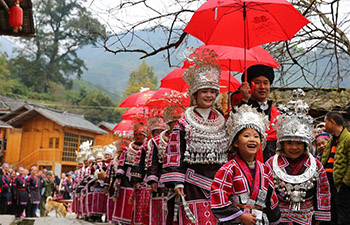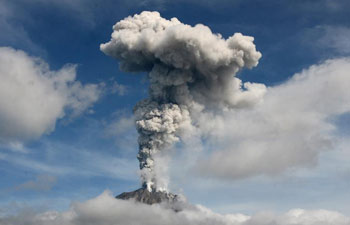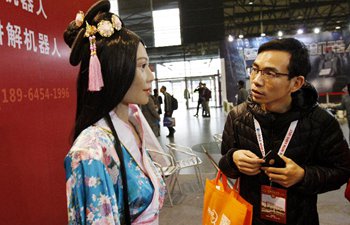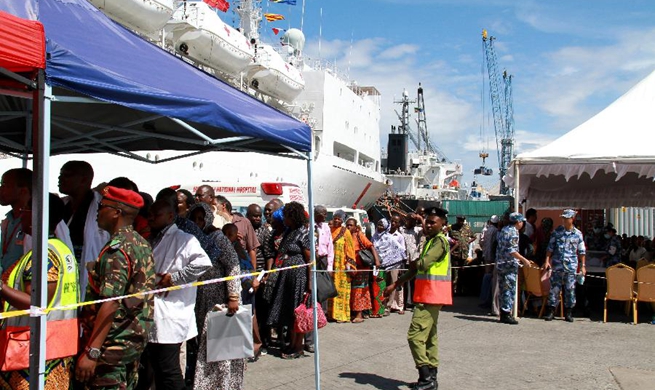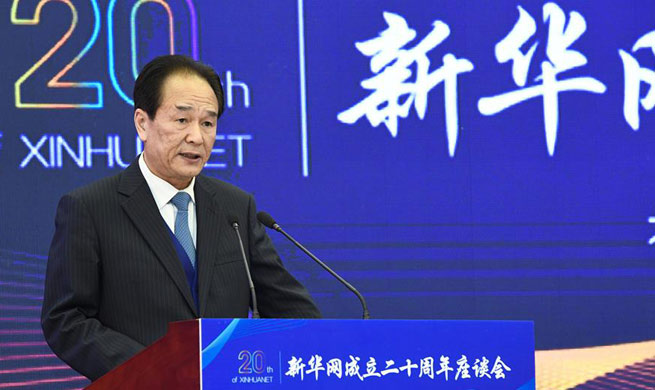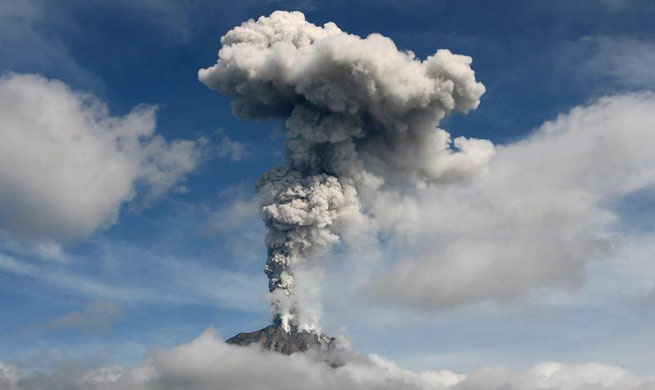BEIJING, Nov. 21 (Xinhua) -- In a move that will further weigh on the precarious situation on the Korea Peninsula, the White House on Monday relisted the Democratic People's Republic of Korea (DPRK) as a state sponsor of terrorism.
Pyongyang had been on the U.S. terrorism sponsor list for some two decades until 2008 when then U.S. President George W. Bush delisted it in exchange for progress in denuclearization talks.
The re-designation, coming a week after U.S. President Donald Trump's lengthy Asia tour that particularly focused on the Korean nuclear issue, reflects the U.S. intention to keep "maximum pressure" on Pyongyang to rein in its nuclear ambitions.
Following a U.S.-led naval drill in the region that unprecedentedly involved three U.S. aircraft carriers, labelling the DPRK a state sponsor of terrorism could probably qualify as a "symbolic gesture," just as U.S. Secretary of State Rex Tillerson claimed, but it runs the risk of fanning the flames on the Korean Peninsula anyway.
It is almost common knowledge that the crux of the Korean Peninsula nuclear issue is the decades-long animosity between Pyongyang and Washington: every time the United States stages maneuvers that are seen as hostile or provocative, the DPRK would just have more reasons to seek nuclear deterrence, in defiance of UN Security Council resolutions and in disregard of international condemnation.
The rapid escalation of tensions on the Peninsula this year is largely the result of a game of chicken between the two sides, in addition to such primary factors including the DPRK's multiple missile launches and its sixth nuclear test in September, all of which were cited by Pyongyang as "victories against the U.S. imperialism."
The prospect of a nuclear-free Korean Peninsula has been pushed farther away by one after another irresponsible action or blaring rhetoric. And it is only wise to call off such negative input into the issue now and make earnest efforts to cool tensions there.
Therefore, both Washington and Pyongyang, two primary parties to the nuclear impasse, need to stop exchanging hostilities and fueling hatred, and start building up their mutual trust, a fundamental element to underpin all other subsequent moves. Otherwise, the cause for a denuclearized Korean peninsula could be even more formidable to achieve.
To help soothe the situation, China has proposed a dual-track approach, seeking to advance denuclearization and establish a peace mechanism in parallel. Beijing, in its "suspension for suspension" initiative, calls for Pyongyang to pause its missile and nuclear activities while Washington to put its joint military drills with South Korea on hold.
Yet ultimately, it is up to the United States and the DPRK to at least resist the urge to take any unilateral actions that may further aggravate the situation on the Korean Peninsula, for the sake of their own security and of the wider region.
Other parties to the issue should also follow the golden rule of refraining from provocation and always proceed with restraint, considering the enormous impact of any miscalculation regarding the peninsula.




